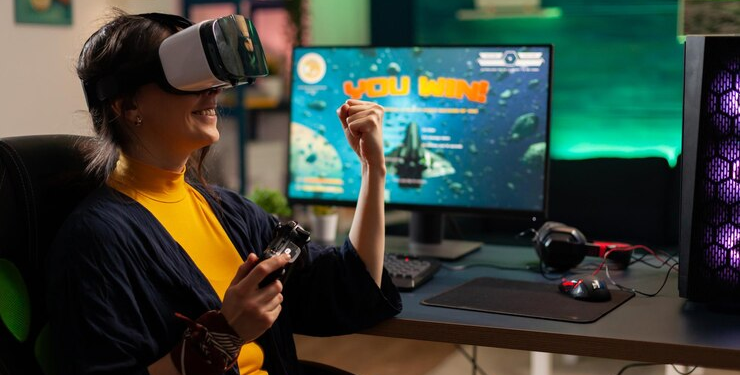Video games have come a long way since the days of chunky pixels and simple mechanics. What began as arcade entertainment with classics like Pac-Man and Space Invaders has transformed into a multibillion-dollar industry, offering deeply immersive experiences across genres. The journey of gaming is not just technological; it reflects cultural shifts, storytelling advances, and even changes in how we socialize.
Early Days: Simplicity and Innovation
In the 1970s and 80s, video games were simple yet groundbreaking. Titles like Tetris and Super Mario Bros. didn’t need photorealistic graphics to capture imaginations. These games relied on gameplay innovation and addictive design, proving that fun mechanics could stand the test of time.
The Rise of 3D Worlds
By the mid-1990s, the introduction of 3D graphics changed everything. Games such as Tomb Raider and The Legend of Zelda: Ocarina of Time brought new levels of depth, exploration, and immersion. Players weren’t just moving characters across screens; they were exploring entire worlds with a sense of freedom that was once unimaginable.
Online Connectivity and Multiplayer Experiences
With the spread of the internet, gaming evolved into a more social activity. Multiplayer online games like World of Warcraft and competitive titles like Counter-Strike allowed players from different parts of the world to connect and collaborate. This not only expanded the industry but also gave rise to esports, streaming, and massive global communities.
Modern Trends and Future Possibilities
Today, gaming is intertwined with cutting-edge technology such as virtual reality, augmented reality, and artificial intelligence. Developers are exploring how games can become more immersive, realistic, and personalized. From narrative-driven adventures to fast-paced competitive titles, there is something for every type of player. Even niche experiences like the pragmatic11 slot scene highlight how varied digital play has become, appealing to audiences who want more than just traditional gameplay.
Why It Matters
Video games are no longer just entertainment. They influence art, education, and even mental health research. Studies have shown that certain games can improve problem-solving skills, teamwork, and even memory. As the medium continues to evolve, it remains one of the most dynamic forms of cultural expression in our digital age.

















